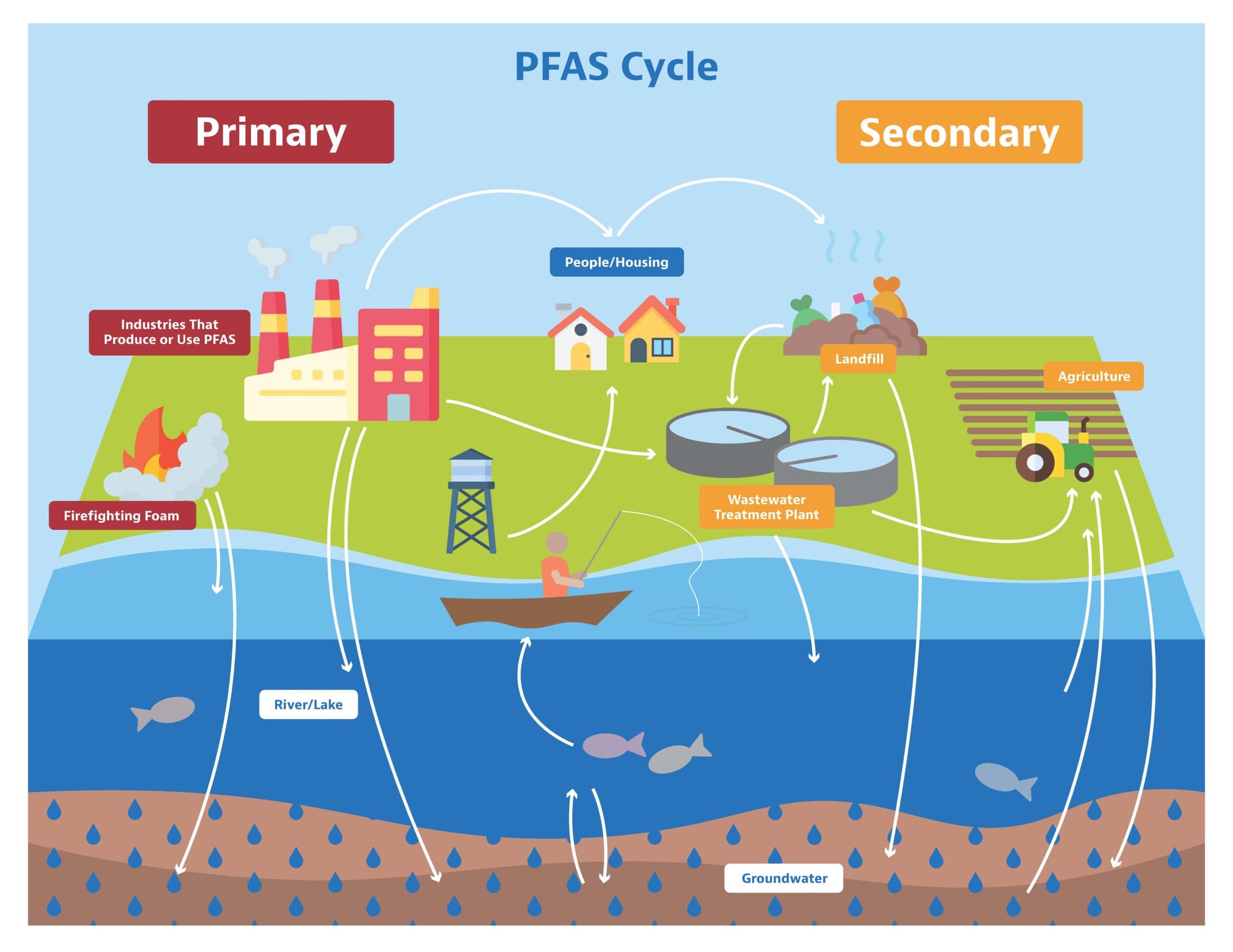There's no question, the word innovation has become really powerful nowadays. But maybe we should question at what point does innovation actually cease to serve us, and instead potentially hurt us. Do we continue striving for convenience and improvement even if it means compromising our health? If you haven't already heard of 'forever chemicals', then I think it's about time you read up. If not for your health and the climate, then maybe at the very least for your wallets.
Forever & Ever
Forever chemicals, also known as PFAS, are an immense group of over 12,000 man-made chemicals that have been in significant use since about the 40s. They're found in nearly every industry and consumer product due to the unique applications these chemicals are able to offer. For example, some of their most famous use cases have been resistence to heat, water, and oil, stain repellency, and fire retardancy. And its because of these characteristics, that these forever chemicals have been used rampantly for things like nonstick cookware, waterproof clothing, firefighting foam, food packaging, and personal care products like cosmetics and lotions just to name a few. In fact, you probably come into contact with PFAS of some kind so often, that recent studies indicate its more than likely you already have PFAS in your blood stream too.
Although forever chemicals offered beneficial qualities for our convenience, our recent understanding of them has revealed just how detrimental they really are to our health. More specifically, forever chemicals have been tied to a number of different cancers, immune system problems, thyroid problems, and developmental issues in children. It's actually the same qualities of forever chemicals that make them useful, that subsequently cause us harm as well. PFAS are extremely persistent, meaning they don't break down easily in the environment. This often leads to building in our waters, soil, and air - that eventually can find their way into our bodies one way or another.

Health is Wealth
The reason we're talking about it more now, is because major nations and world leaders have recently began cracking down. In fact, in my day-to-day work, often communicating with wastewater treatment folks and compost permitting, I've been hearing about PFAS restrictions more and more. And this had me inevetably thinking - who currently has a solution to PFAS management, and who's set to benefit from it?
In fact, I thought this topic was a great representative example of how climate-solutions are not only just better for the planet, but better for your health, and what you'll now see- better for the economy as well. An article from Barron's had a great way of putting it - "today, the big money isn't in making those 'forever chemicals'…rather its in cleaning them up…". Barron's estimates the effort will cost/generate more than $200 billion, depending on which way you look at it. Some estimates even compare PFAS to the tobacco settlements of the 90s which clocked in around $206 billion. All the while, manufacturers like DuPont and 3M continue to be in the midst of major settlements, with billions having already been paid out.
Conclusion
Now look, I'm not sitting here claiming I'm qualified to give financial advice (but if you're interested check out the Barron's article here which I found pretty insightful). Instead I was hoping to highlight how climate efforts, which encompass more than just atmospheric carbon, will open up economic opportunities in the near and long-term future. It should also be understood as well that, there truly isn't a price for your health, and innovation that inevitably gives us a convenient but shortened life - sounds more like a counterintuitive capitalistic fever dream than it does a fruitful society.
Thanks again to each of you reading, if you enjoyed this article and would like to see us dive more into the financial realm of climate change, leave a comment below!








